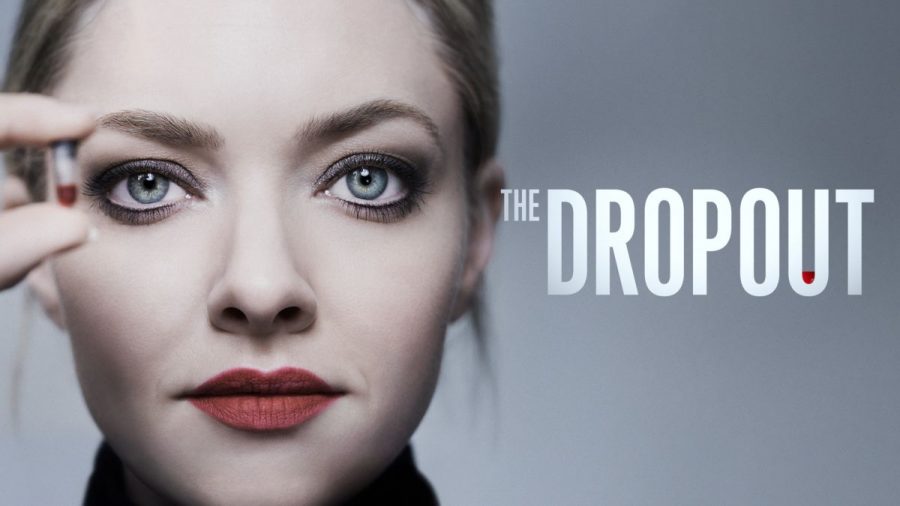Review: The Dropout, on Hulu
Hulu recently premiered its final episode of The Dropout, the 8 episode mini-series following the story of notorious medical mogul Elizabeth Holmes.
The show first premiered back in March with its first three episodes being released first and centering around the young Elizabeth played by Academy Award-winning actress Amanda Seyfried.
As the show progresses, the audience is introduced to more characters, and more characters are sidelined with the cast in the first half of the season being almost completely different from the cast in the second half. The Dropout clearly had a vision much like its subject, but paralleling Elizabeth Holmes, The Dropout ultimately squanders potential for an invigorating, emotionally packed story. Seyfried’s performance easily solidifies Elizabeth Holmes as the ambitious but eventual unfeeling, cold-hearted, schemer she is but we lose much of it while screen time is given to other characters.
The story of Theranos and its scandal had many key factors and players that influenced the overall outcome of the company and the show stumbles while trying to portray them all.
Towards the beginning of the season, chemist Ian Gibbons (Stephen Fry) begins working alongside Elizabeth in developing the device that would be known as the Edison. This device was allegedly supposed to run multiple tests from a single drop of blood but due to the limitations and constant rushing of procedures, Edison’s results were almost always inaccurate. When Ian learns of this he becomes infuriated with Elizabeth. He confronts her and she fires him but shortly rehires him after Ian’s co-workers protest his termination.
However, when Ian is rehired he’s stationed at a desk instead of a lab and then is subpoenaed by Richard Fuisz (William H. Macy) to testify on behalf of patents he developed for Theranos. The pressure from Elizabeth’s ruthless legal consultant Linda (Michaela Watkins) and Fuisz’s team sends Ian into a spiraling depression. He takes his own life in episode 5. This tragic plotline replicates reality with precise accuracy bringing the real Ian Gibbons’s story to life and forcing audiences to realize how much damage Elizabeth Holmes and her company inflicted.
Plotlines like these are powerful but the melding of so many characters from lawyers, to board members, to journalists, to whistleblowers ultimately distracts from who is at the heart of this show: Elizabeth.
Many episodes in the middle of the series feature very little screen time with Seyfried or in her place utilize Naveen Andrews’s portrayal of Sunny Balwani which some have also found conflict with.
Due to the unclear consensual status of Holmes’ and Balwani’s relationship, scenes between the two of them mostly felt like speculation and the chemistry was not very believable. This is saying something since both Seyfried and Andrews were sex symbols in the early 2000s while in movies like Mean Girls and shows like Lost.
The show picks back up a bit once we’re introduced to the ones who initiated Theranos’s downfall Tyler Shultz (Dylan Minnette) and Erika Cheung (Camryn Mi-young Kim). Minette and Mi-young Kim have incredible chemistry and watching them grapple with learning how to take down one of the biggest companies of the time was riveting. Mi-young Kim’s performance was especially noticeable and noteworthy as this is her first major role.
Once things start crumbling for Theranos we start to see Sunny and Elizabeth’s relationship unravel, not that it was secure in the first place but the show handles this in a very rushed fashion.
As the first episode, “I’m in a Hurry” suggests, The Dropout seems to be hurrying to make an impact as the Elizabeth Holmes trial gains attention again. Many scenes feel too short while others feel too long. Numerous quick cuts and unnecessary transitions are made to again help the viewer follow along with the multitude of plots introduced when really this central story is about one woman and how her ambition blinded and corrupted her.
The final episode “Lizzy” offers more insight into Elizabeth’s cold, reserved personality, having her ignore those who are confronting her devious actions. Instead, she focuses on what good she has left in her life.
Perhaps if the rest of the show followed more closely to the Elizabeth narrative even if it had to exaggerate for dramatic purposes would’ve made for an extremely compelling season of television.
Instead, Hulu has churned out another mediocre story that’s really only worth speaking about because of the cast, performances, and overall true crime appeal.

